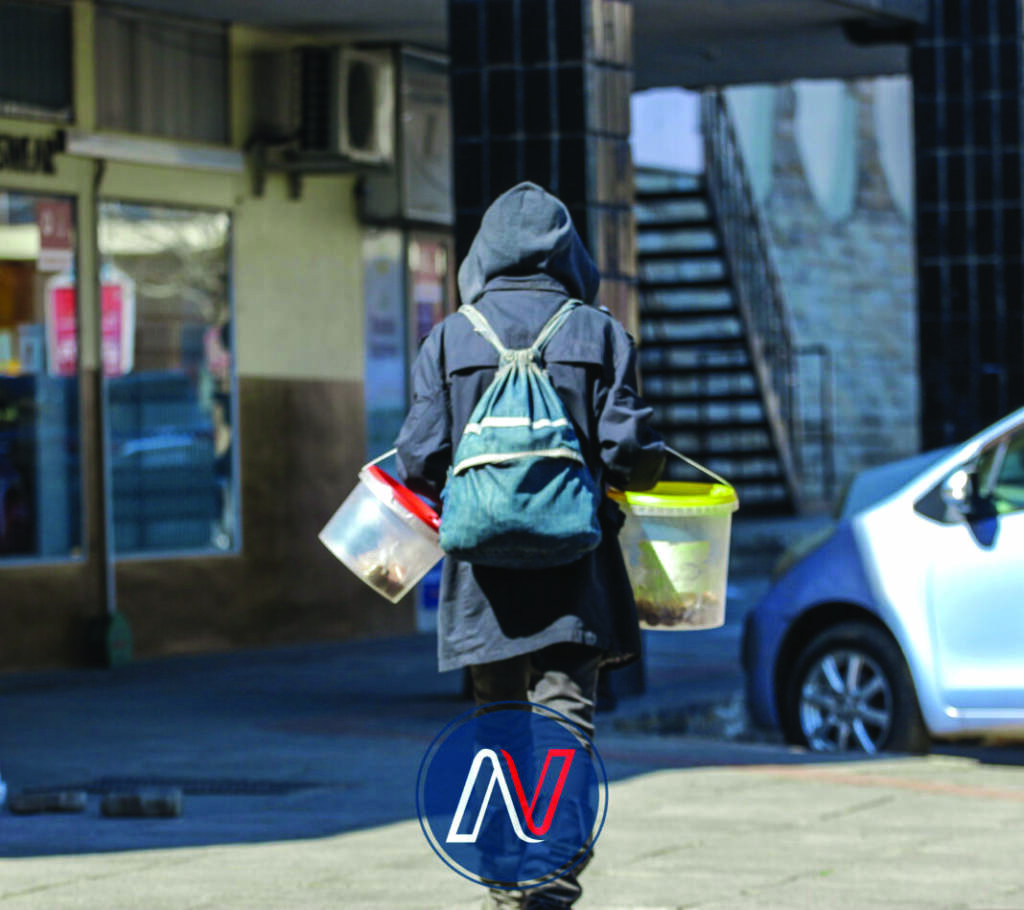Kamohelo Makhofola
The hardships faced by poor people show that we have lost touch with important spiritual values like caring, fairness, and having enough. Poverty is not just about not having money—it is also about feeling disconnected from what matters spiritually. This idea tells us that we need to work together to help others, not just by giving them things, but also by caring about their feelings and understanding that we are all connected.
Poverty occurs when we forget to treat each other kindly and fairly, and when we do not share what we have. Many religions teach us to care for others, be fair, and use our resources wisely. When people ignore these teachings, it creates a situation where some have plenty, while others struggle to get by. This makes life hard for those with less. Sometimes, people only focus on getting more for themselves, even if it means others suffer. This makes the problem worse. Poverty reminds us of the importance of remembering these lessons about kindness and fairness.
We need to think about how our actions affect others and help those who are struggling. By working together and being caring and fair, we can make the world better for everyone, no matter how much money they have. Understanding poverty this way helps us see that it’s not just about not having enough money, but also about how we treat each other and the values that guide us to be good people.
When some people have a lot more than others, it shows that something is not right in how we treat each other. It is like a sign that our values of fairness and kindness are not strong enough. Instead of sharing and helping each other, some people are only thinking about themselves, even if it means others suffer. This shows that we are not doing a good job of being good and fair to everyone.
So, when we see inequality—when some people have a lot and others have very little—it is a sign that we need to do better at treating each other with kindness and fairness. We need to work together to make sure that everyone has what they need to live a good life, and that nobody is left behind.
Collective Responsibility in Addressing Poverty
Poverty is a problem that we all need to work together to solve. It’s not just up to one person or group to fix it. We all have a part to play in making things better for everyone. This means that governments, communities, and individuals need to come together and take action.
We need to create rules and programs that help those who are struggling, and make sure that everyone has a fair chance to succeed. It also means that we need to look out for each other and lend a hand when someone needs help. By working together and taking care of each other, we can make sure that nobody has to live in poverty, and that everyone can live a happy and healthy life.
We can rebuild our bonds with others by being kind and supportive. When we show care and understanding to those who are struggling, we bridge the gap between us. Compassion means feeling for others and helping them when they need it. Solidarity means standing together and supporting each other, especially when times are tough.
By doing things like helping a friend in need, volunteering in our communities, or speaking up for fairness, we strengthen our connections with others. These actions remind us that we are all in this together and that nobody is alone. So, by showing compassion and solidarity, we can heal the divide between us and create a world where everyone feels valued and supported.
To really help people out of poverty, we need to look at the whole picture. It is not just about giving them money or food, although that is important too. It is also about giving them the tools and support they need to build a better life for themselves. This means things like education, job training, and access to healthcare.
It also means creating environments where everyone feels safe and respected. By taking a holistic approach, we can address the root causes of poverty and help people break the cycle for good. So, instead of just treating the symptoms, we need to tackle the problem from all angles and give people the chance to thrive.
Even when things are tough, it is important to keep believing that things can get better. Hope means having faith that good things are possible, even when it is hard to see. Resilience means bouncing back from tough times and staying strong. People who face poverty often show incredible resilience and courage in the face of adversity.
They keep going, even when things seem hopeless. By holding onto hope and staying resilient, we can overcome challenges and create a brighter future. So, even though poverty can be tough, it’s important to remember that there is always hope and that we can get through it together.
Discrimination, unfair resource distribution, and policies favouring the wealthy are key factors perpetuating poverty and distancing us from our spiritual values.
A significant issue is the unequal access to quality education.
Many communities lack adequate schools, depriving children of a solid education and limiting their future prospects. This disparity not only widens the gap between the rich and the poor but also contradicts the principles of compassion and justice inherent in spiritual teachings.
Similarly, disparities in healthcare access exacerbate the spiritual divide. Limited access to affordable healthcare perpetuates cycles of suffering and undermines our responsibility for the well-being of others.
Economic policies exacerbate this spiritual crisis by perpetuating inequalities. Tax structures that favour the wealthy and exploitative labor practices strain our moral fabric, and highlight the need for collective action rooted in empathy and justice.
When individuals or societies engage in discrimination or uphold structures that marginalise certain groups, they betray principles of compassion and justice central to many spiritual beliefs. Discrimination disrupts the interconnectedness emphasised in spiritual teachings, and creates barriers to experiencing the divine within ourselves and others.
Addressing systemic issues like discrimination is crucial for fostering social justice and equality, as well as for repairing the broken relationship between humanity and divinity. By aligning our actions with spiritual values of compassion, justice, and interconnectedness, we take a step towards healing and creating a world where every individual is valued and supported in their journey towards prosperity and spiritual fulfillment.

Your Trusted Source for News and Insights in Lesotho!
At Newsday Media, we are passionate about delivering accurate, timely, and engaging news and multimedia content to our diverse audience. Founded with the vision of revolutionizing the media landscape in Lesotho, we have grown into a leading hybrid media company that blends traditional journalism with innovative digital platforms.











